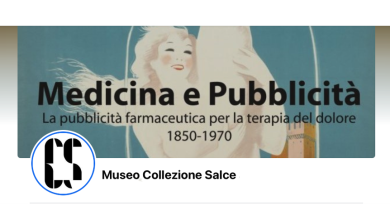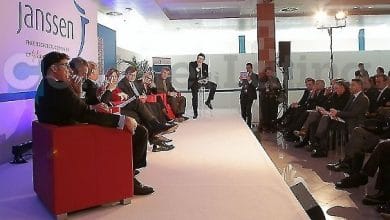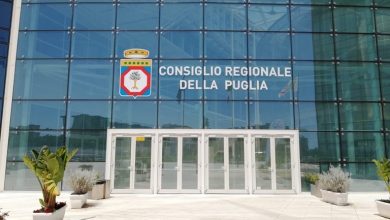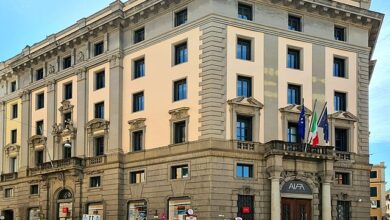
The prohibition of combining the pharmaceutical profession with the exercise of other health professions or arts does not prevent the planning of prevention days against the main pathologies with a strong social impact in pharmacies, with the presence of a doctor in the pharmacy. This is a point that emerges from the Sentence (n. 3357 of 7/7/2017) of the Council of State (Section III), «a sentence» comments Paola Ferrari, lawyer of the law firm of the same name, «which in fact clears customs presence of the doctor in the pharmacy and indicates the methods and limits with which it must be carried out". The story concerns a pharmacy which "contested the outcome of the tender called by the Municipality of Borgo Virgilio (Mn) to the Lombardy Regional Administrative Court to entrust the management concession of the municipal pharmacy using the most economically advantageous offer method". [taken from Pharmacist33 of 08/25/2017]
Related news: State Council. Medical visits to the pharmacy only for health prevention and diseases with a strong social impact
Vaccines, soon they can also be made in pharmacies. FNOMCeO: no to doctors in the pharmacy
Council of State, section III, sentence 27 June – 7 July 2017, n. 3357
President of Lipari – Extensor Noccelli
Fact and right
1. Today's main appellant Farmacia C. snc di C. e Grandi (hereafter, for the sake of brevity, Farmacia C.) contested the outcome of the tender called by the Municipality before the TAR for Lombardy, Brescia section of Borgo Virgilio (MN), with the announcement published on 21 January 2016 in the OJEU, to entrust the management concession of the municipal pharmacy for 360 months from the award, a tender in which it was classified, using the most economically advantageous offer method second with 90,075 points after the counterparts doctors JFF and AM, associated with each other, the only other participants, winners with 90,600 points.
1 .1. To this end, the appellant in the first instance articulated three reasons for the illegitimacy of the tender procedure with reference to the evaluation of the offer of the counterparties by the Commission of selection, reasons, as will be seen, then reproposed - albeit with a different order of treatment - in the appeal grievances and which will be examined with them below, and requested, after suspension, their annulment, with the consequent awarding of the tender in their favour.
.1. To this end, the appellant in the first instance articulated three reasons for the illegitimacy of the tender procedure with reference to the evaluation of the offer of the counterparties by the Commission of selection, reasons, as will be seen, then reproposed - albeit with a different order of treatment - in the appeal grievances and which will be examined with them below, and requested, after suspension, their annulment, with the consequent awarding of the tender in their favour.
1.2. The Municipality of Borgo Virgilio (MN) and the other parties resisted in the first instance, who in turn proposed a cross-appeal, with which they requested, subordinately to the rejection on the merits, that the main appeal be declared inadmissible due to lack of interest of the appellant.
1.3. Subsequently, during the first instance proceedings, the appellant proposed additional grounds, filed on 28 June 2016, against the tender report no. 5 of 30 May 2016, with which the Commission of selection confirmed the score assigned to the winning offer as regards the sub-criteria "organisation, at least every six months, of courses aimed at the prevention of chronic diseases".
1.4. With sentence no. 1692 of 12 December 2016, the Lombardy Regional Administrative Court, detached section of Brescia, declared the additional reasons inadmissible and rejected the main appeal, for all three defects alleged by Farmacia C., while it declared the conditional cross-appeal inadmissible, proposed by the counterparties, JFF and AM.
2. Against this sentence, in the part in which it rejected the main appeal and declared the additional grounds proposed in the first instance inadmissible, Farmacia C. filed the main appeal and, articulating three grounds of censure which will be examined below, requested, subject to suspension, the reform, with the achievement of the annulment of the award and the assignment of the concession in one's favour.
2.1. The respondent Municipality of Borgo Virgilio (MN) was formed to resist the main appeal, and the counterparties, JFF and AM, also formed to resist the main appeal and to propose a conditional cross-appeal against the sentence in the which he declared inadmissible the cross-appeal proposed by him in the first instance.
2.2. In the closed session of March 2, 2017, scheduled for the examination of the precautionary application, the Board, deeming it necessary to promptly decide the dispute on the merits, postponed the discussion on the agreement of the parties to the public hearing of June 27, 2017.
2.3. In the public hearing of 27 June 2017, the Panel, having heard the defenders of the parties, withheld the case for decision.
3. The main appeal is unfounded and must be rejected.
4. With the first reason (pp. 5-10 of the appeal) today's main appellant deduces the erroneousness of the contested sentence in the part in which it rejected the third reason of the original appeal, brought in first instance, where this contested:
– the illegitimacy of the tender specifications in relation to the inclusion among the elements of evaluation of the technical offers, provided for in art. 11.3, of the organization of prevention days through medical examinations, for the alleged violation of art. 102 of rdn 1265 of 1934, of the art. 15 of rdn 1706 of 1938, of the art. 1 of Legislative Decree lgs. no. 153 of 2009 and of the art. 14 of the pharmacist's deontological code, deriving from these provisions the prohibition of practicing medicine in the pharmacy;
– the illegitimacy, due to a derivative defect, of the tender reports and of the provision for the award of the concession, in the part in which 2.40 points were assigned to the counterparties for having foreseen, in their offer, the carrying out of medical visits in the pharmacy by a dermatologist and a dentist.
 4.1. According to the first judge, who disregarded the objection, it would not be a question of absolutely prohibited initiatives, but of initiatives possible provided that correct methods are adopted, as proof, by common experience, that such preventive actions are carried out regularly in pharmacies, without problems of any kind, it being completely logical to believe that the prevention activity will be organized in such a way as to respect the provisions in force on the matter also from this point of view (p. 9 of the contested sentence).
4.1. According to the first judge, who disregarded the objection, it would not be a question of absolutely prohibited initiatives, but of initiatives possible provided that correct methods are adopted, as proof, by common experience, that such preventive actions are carried out regularly in pharmacies, without problems of any kind, it being completely logical to believe that the prevention activity will be organized in such a way as to respect the provisions in force on the matter also from this point of view (p. 9 of the contested sentence).
4.2. Pharmacy C. however disputes this argument and assumes, in the opposite sense, that the interpretation of art. 102 of Royal Decree No. 1265 of 1934 and the other aforementioned provisions, followed by the TAR for Lombardy, would be incorrect because, on the contrary, the prohibition on practicing medicine in the pharmacy premises must be understood in an absolute sense and, therefore, also effective in the event that the same activity is carried out inside the pharmacy by a person other than the pharmacist.
4.3. With the evaluation element in question, the municipal administration should have limited itself to prescribing the organization of prevention days, exclusively, through "screening" and, that is, through diagnostic tests, tests that pharmacies are entitled to perform, pursuant to of the ministerial decree of 16 December 2010, and which the appellant company proposed in its offer.
4.4. The reason must be rejected.
4.5. The interpretation of the art. 102 of Royal Decree 1265 of 1934, advocated by the main appellant, cannot be shared in its absolute terms and conflicts with the regulatory data and, in particular, with the provision of art. 1, paragraph 2, lett. c), of Legislative Decree lgs. no. 153 of 2009 which, in implementation of art. 11 of Legislative Decree lgs. n 69 of 2009, expressly allows, among the new services, «the provision of first level services, through which pharmacies participate in the implementation of health education programs and prevention campaigns of the main pathologies with a strong social impact, aimed at general population and groups at risk and implemented at national and regional level, using information methods appropriate to the type of structure and, where necessary, subject to prior training of the pharmacists who work there".
4.6. The evolution of the legislation on the matter therefore shows that the prohibition of combining the pharmaceutical profession with the exercise of other health professions or arts (on which see, however, Cons. St., section IV, 1 October 2004, n 6409) does not prevent the provision of prevention days at pharmacies, as part of special health education programs or specific campaigns against the main pathologies with a strong social impact, including through medical visits, the purpose of which, however, is precisely that of promoting the essential value of health prevention and the anticipated fight against pathologies with a strong social impact.
4.7. Therefore, they do not appear to incur a violation of said legislation, also in the light of the fundamental social and health purposes - to collaborate in the health education programs of the population carried out at national and regional level and to carry out prevention campaigns for the main pathologies with a strong social impact - pursued by art. 11, paragraph 1, lett. b) and lett. c), of Legislative Decree lgs. no. 69 of 2009, nor the provision of the disciplinary, relating to the provision of prevention days through doctors, nor even more so the envisaged organization, by today's appellants, of periodic meetings with a dermatologist and a dentist, in the context of the prevention of which it was said.
4.8. Furthermore, these are two figures who are completely unrelated to the organization and management of the pharmacy, who only and exclusively within the scope and for the purposes of these prevention days would carry out paid visits, without the pharmacists participating in any way in the profits that the two professionals would derive from it.
4.9. And moreover, it must be noted here, the municipal pharmacy, object of the procedure, is still physically non-existent in terms of location, premises, concrete subdivision of them, and the carrying out of medical visits during the prevention days will have to be carried out in compliance not only with the provisions of the specification, but also with the legislation on the subject and therefore, if necessary, with the same art. 45 of rdn 1706 of 1938, mentioned above, which provides that medical-surgical outpatient clinics must always have a different entrance from that of the pharmacies, to which they are annexed, and must not have any internal communication with them.
Hence, for the reasons set out, the groundlessness of the plea in question, with the consequent legitimacy of the 2.40 points assigned to the successful tenderers' offer, as regards the profile of the economic offer examined here.
5. With the second reason (pp. 10-16 of the appeal) today's appellant deduces the erroneousness of the contested sentence for having disregarded the first reason of the original appeal, with which, in relation to the evaluation criterion concerning «the 'organisation, at least every six months, of courses aimed at the prevention of chronic diseases', the inconsistency of the score assigned to the counterparties with respect to the judgment formulated by the Commission of selection had been deduced.
5.1. In this reason, the appellant had highlighted, in particular, that the score awarded was not consistent with the "partially adequate" judgment, being equal to 60% of the attributable and corresponding score, on the scale of assessment pursuant to art. 14 of the tender regulations, to the judgment of "sufficient", when, instead, the judgment "partially adequate" corresponds to a score equal to 30% of the maximum.
5.2. In short, the main appellant argues that the counterparties should have been awarded a score of 0.90 points, consistently with the judgment formulated.
5.3. The first judge also rejected this complaint because he noted, among other things, that the tender regulations envisage the discursive motivation as an "accessory" with respect to the score, without establishing "strict rules for its drafting" and also highlighting that the Commission of selection, also in another case, had used the words "partially adequate" to illustrate a score higher than the 30% of the maximum.
5.4. However, the main appellant disputes this argument because, while acknowledging that the motivation can be considered as an accessory element for which no particular formulas were required, he does not admit the same for the final judgments which, instead, were indicated in the tender specifications with precise lexical expressions (not evaluable, partially adequate, sufficient, fair, good, etc.).
 5.5. The services offered by the counterparties were judged partially adequate by the Commission and, consequently, should have received a score of 0.90 and not that of 1.80, corresponding to the judgment of sufficient according to the judgment "scale" set out in the specification.
5.5. The services offered by the counterparties were judged partially adequate by the Commission and, consequently, should have received a score of 0.90 and not that of 1.80, corresponding to the judgment of sufficient according to the judgment "scale" set out in the specification.
5.6. The reason is groundless.
5.7. Well pointed out the first judge, on the point, that according to the letter of the announcement, the Commission of selection should have assigned, first of all, a numerical score, with the scale described, and then illustrate it succinctly, with a discursive motivation, for which rigid and predetermined formulas were foreseen.
5.8. The fact that the Commission assessed, in the explanatory statement, the offer of the counterparties as only partially adequate does not therefore mean that it intended to use said expression in the sense of the assessment envisaged in the scale, as the main appellant claims by assuming the inconsistency of the score assigned with respect to the corresponding evaluation of the scale, but only that it, succinctly motivating it, intended to highlight how the offer of the counterparties was limited only to the organization of courses aimed at the prevention of coronary heart disease and not of other chronic diseases and was not, therefore fully satisfactory in relation to the elements taken into consideration by the evaluation sub-criterion.
5.9. Which, in all evidence, did not necessarily imply the assignment of a score equal to the 30% of the maximum, as the appellant claims, but could also determine the mere sufficiency of the offer, from this point of view, as the Commission of selection considered, in the exercise of its technical discretion, according to an assessment that appears neither manifestly illogical nor affected by a misrepresentation of the facts.
5.10. Said appreciation, moreover, remained unchallenged in its intrinsic evaluation content, as well as the first judge did not fail to point out when, agreeably, he paused to highlight the merely formal, and not substantial, nature of the objection in question.
5.11. It follows, in addition to the rejection of the plea, the inadmissibility, due to lack of interest, of the further complaints (pp. 14-15 of the appeal), with which the main appellant essentially re-proposed the additional reasons, declared inadmissible by the first judge, against the report of 30 May 2016, with which the Commission of selection limited itself to confirming the assessments already expressed during the tender, since these were objections which, beyond any profile of possible inadmissibility, must in any case be rejected in the merit, as reiterative of those evaluated above, precisely for the reasons just expressed in §§ 5.7.-5.11.
6. Finally, with the third reason (pp. 16-18 of the appeal), today's main appellant deduces the erroneousness of the contested sentence in the part in which, rejecting the second reason of the original appeal for the absence of inherent profiles to the manifest illogicality, it considered correct the evaluation, by the Commission of selection, to assign the gender maximum score - equal to 5 - to both offers in relation to the evaluation sub-criterion of the "carrying out of free self-analysis tests (haemoglobin, transaminase, uric acid, cholesterol, triglycerides) in favor of customers residing in the territory pertaining to the pharmaceutical business over the age of 70 and with a disability equal to or greater than 70%".
6.1. According to the main appellant, however, its own offer would be better than that of the counterparties because it would have lowered the thresholds for access to the free service to 66 years of age and 66% of disability and would have proposed to carry out specific tests for total cholesterol , HDL cholesterol and LDL cholesterol.
In the face of these improving aspects, therefore, the offer of the counterparties should have received a score of 4, corresponding to "good" on the already mentioned evaluation scale.
6.2. The plea is rejected.
6.3. The evaluation carried out by the Commission of selection, as deemed by the TAR for Lombardy, detached section of Brescia, is not affected by any macroscopic error or misrepresentation of the facts because it assigned the same score to both offers, evidently evaluating positively, in relation to the specificity that each of them has, individual aspects that one had and the other did not, but always within the context of a global and synthetic assessment, which led the technical body to identify in each, for its part, traits of excellence.
6.4. The main appellant moreover, and understandably, insists on the "improvements" of its offer, but neglects that the offer of the other parties stated, for example, the technical specifications of the devices, with which the blood glucose tests would be performed and cholesterol, also providing for the execution of total cholesterol, HDL and LDL tests, and also allowed the possibility of measuring glycated hemoglobin, an important indicator of the patient's state of health, especially with reference to diabetic pathology.
6.5. Overall, and in conclusion, the complaint, to the extent that it excessively enhances the appellant's offer, unjustifiably, to the full detriment of that presented by the contractors, of which it is silent on the positive aspects, inadmissibly aims to replace itself and/or to invoke the substitution of the administrative judge for an evaluation, which is the responsibility of the Administration, even when it does not present aspects of abnormality, gross erroneousness or evident misrepresentation of the circumstances.
6.6. Therefore, this ground of the main appeal must also be rejected.
7. From the examination of all the reasons examined above, whose groundlessness emerged, the rejection of the main appeal proposed by Farmacia C. follows and, consequently, also the declaration of inadmissibility of the incidental appeal (pp. 25-30 of the pleading), conditioned by JFF and AM to accept the main appeal, which was instead rejected.
8. In conclusion, the contested sentence deserves complete confirmation, with the consequent legitimacy of the award achieved by JFF and AM.
9. Given the specific complexity of the issues examined (in particular those relating to the interpretation of Article 102 of Royal Decree No. 1265 of 1934), the costs of the present level of proceedings may be fully compensated between the parties.
9.1. The unified fee required for the proposition of the main appeal remains definitively and respectively payable by Farmacia C. and the unified fee required for the proposition of the conditional cross-appeal is payable by JFF and AM.
PQM extension
The Council of State in the jurisdictional seat (Third Section), definitively pronouncing on the main appeal, as proposed by Farmacia C. snc di C. e Grandi, and on the incidental appeal, as proposed by JFF and AM, rejects the first and declares the second inadmissible and, as a result, confirms the contested sentence.
It compensates entirely between the parties the costs of the present instance of the proceedings.
It definitively pays Farmacia C. snc di C. e Grandi the unified fee required for the lodging of the main appeal and the unified fee requested for the lodging of the incidental appeal is payable by JFF and AM.
Orders that this sentence be carried out by the administrative authority.





